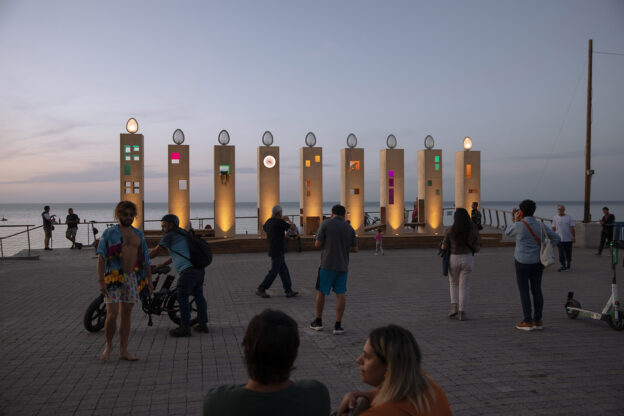
(RNS) — Listen up, boys and girls.
Once upon a time, there were a lot of Jews living in the Land of Israel. Some of them were up to date with world culture, which is to say they read Greek lit, went to the gym and weren’t all that religious. Others were, well, fundamentalists. The two groups were pretty polarized. After a while, their harsh culture war became a civil war.
As it happened, the Land of Israel in those days was controlled by the king of Syria, a none-too-stable Greek culture guy known as Antiochus Da God. After beating up on the Egyptians, he decided to settle the Jews’ hash, siding (of course) with the liberals.
Seizing Jerusalem, Antiochus decided to outlaw the practice of Judaism altogether, burning copies of the Torah, prohibiting observance of the Sabbath and holidays and forbidding circumcision. He turned the Temple into a Greek religious shrine, complete with a statue of Zeus.
As a result, a country priest named Mattathias and his five sons instigated a revolt. These Maccabees, as they came to be called, used guerrilla tactics to defeat the Syrian army, recaptured Jerusalem and rededicated the Temple.
Many of you have heard that their victory was accompanied by a miracle, in which a one-day supply of undefiled oil kept the Temple menorah burning for eight days. I’m sorry to have to tell you it never happened.
The real deal was that, because of the Temple takeover, the Jews hadn’t been able to observe the weeklong fall pilgrimage festival called Sukkot. The first Hanukkah was designed to make up for that, and it continued annually as the Feast of Dedication. Jesus himself visited the Temple during this feast.
As for the miracle of the oil, that was an old rabbis’ tale, told in the Talmud centuries after the fact to demonstrate that God had a hand in the story. In fact, the rabbis didn’t really like Hanukkah.
How come?
For starters, it was the Maccabean revolt that inspired the revolt against the Romans some 170 years later, which led to the destruction of the Temple and the exile of Jews from Judea. Plus, the descendants of the Maccabees who ruled as the Hasmonean dynasty were deeply flawed characters.
They combined the office of king and high priest in their own persons, violating the separation of religious and political authority established under Moses and Aaron after the Israelites left Egypt. (Talk about Jewish theocracy!) The Hasmonean priest-kings were also intolerant, slaughtering thousands of Jews who didn’t agree with them. And they got into fights with the religious precursors of the rabbis.
At the same time, the Hasmoneans conquered a bunch of territory, leading scholars to debate whether they wanted to restore the Greater Israel of King David and King Solomon. Whether their territorial ambitions were primarily religious or secular is also a matter of debate. They did force people in their territory to have their sons circumcised.
Truth to tell, this period of history has long served as a touchstone for reckoning with control of the land of Israel. Where the rabbis of the Talmud kept the Maccabees at arm’s length, the Zionists happily rehabilitated them as heroes of their new state.
These days, we may wonder whether the deeply flawed Israeli leader, Benjamin Netanyahu, is seeking to restore the Greater Israel of David and Solomon, and whether his government, well supplied with zealots, is motivated by secular or religious goals. As always in the Jewish world, the debates continue.
Happy Hanukkah!
